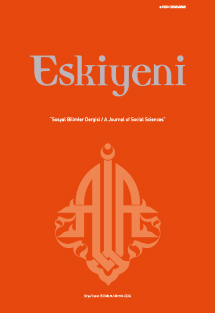Manevi İçerikli Gelişim Destek Programının Otizm Spektrum Bozukluğu Olan Çocuk Sahibi Ebeveynlerin Umutsuzluk, Dini Başa Çıkma ve Psikolojik İyi Oluş Düzeylerine Etkisinin İncelenmesi
Study on the Effect of Spiritual Development Support Program on Hopelessness, Religious Coping and Psychological Well-Being Levels of Parents with Autism Spectrum Disorder
Author(s): Mehmet Emrullah DuranSubject(s): Psychology of Religion
Published by: Anadolu İlahiyat Akademisi
Keywords: Psychology of Religion; Parents of Children with Autism; Spirituality; Hopelessness; Religious Coping; Psychological Well-Being;
Summary/Abstract: This study aims to examine the effect of spiritual development support programs on hopelessness, religious coping and psychological well-being levels of parents with autism spectrum disorder using quantitative and qualitative methods. The study was designed according to the sequential descriptive design, one of the mixed research designs. The independent variable of the research is the Spiritually Oriented Development Support Program, while the dependent variables are the levels of hopelessness, religious coping and psychological well-being of parents with children diagnosed with autism spectrum disorder. These dependent variables were respectively measured using the “Beck Hopelessness Scale” the “Brief Religious Coping Scale”, and the “Psychological Well-Being Scale”. At the beginning of the study, pre-tests of hopelessness, religious coping, and psychological well-being scales were administered to the experiment and control groups. After the scale administration, the parents of children with autism spectrum disorders in the experiment group were provided with the “Spiritually Oriented Development Support Program”, which consists of 10 sessions lasting 100 minutes each, once a week for ten weeks, while no intervention was applied to the control group. After implementing the program, post-tests of hopelessness, religious coping, and psychological well-being scales were administered to the experiment and control groups. The data were analyzed using the non-parametric Mann-Whitney U Test and the Wilcoxon Signed-Rank Test through SPSS 25 software. According to the study’s findings, it was determined that parents in the experiment group who participated in the Spiritually Oriented Development Support Program experienced a statistically significant decrease in hopelessness and negative religious coping, as well as a statistically significant increase in positive religious coping and psychological well-being. There was no significant change in hopelessness, positive religious coping, negative religious coping, and psychological well-being levels of parents in the control group which was not provided in the program. Moreover, compared to the control group, it was found that parents in the experiment group experienced a decrease in hopelessness and negative religious coping levels, and an increase in positive religious coping and psychological well-being levels.
Journal: Eskiyeni
- Issue Year: 2024
- Issue No: 52
- Page Range: 133-159
- Page Count: 27
- Language: Turkish

